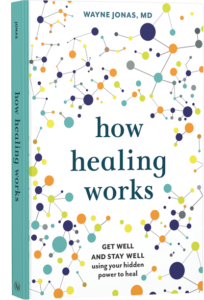We talked last week about how supplements are being used more and more by people, and how, especially in integrative medicine, supplements are increasingly being prescribed by providers to patients as part of whole-person care.
And while the first step is always discussing with your doctor the best approach to any health regimen involving supplements—especially in challenging times of misinformation—it may also be helpful to understand from the provider’s point of view.
So, what other strategies exist for providers looking to further help their patients with a supplement-based routine? Integrative medicine offers three clinical strategies for addressing supplements in practice in an evidence-based manner. These are not exhaustive, but a starting point for practitioners who may already be using one or more of these strategies.
Recommending Supplements for Depletion
What some patients don’t know is that many drugs can deplete the body of nutrients it needs for optimal function. For example, patients who take anticonvulsants such as clonazepam, diazepam and lorazepam are likely to be deficient in calcium. So a patient may need to take a supplement such as Caltrate.
To avoid interfering with medication absorption, the doses of calcium should be divided appropriately throughout the day. Other common drugs that can cause nutrient depletion is estradiol (Estrace), which can deplete the body of folic acid and magnesium, and famotidine (Pepcid), which can cause Vitamin B12 depletion. Guidelines are available that include signs and symptoms of nutrient depletion for monitoring purposes, as well as recommended doses. This can help you begin a conversation with your doctor.
Monitoring Patients who Already Take Supplements
Again, chances are good that many of you (and many other patients) are already taking supplements—whether or not you’ve already shared that with your provider.
Once you do talk with your doctor about which supplements you take, your provider can then monitor them for interactions with prescription and over-the-counter drugs. For example, St. John’s wort (hypericum), interacts with many medications, including but by no means limited to oral contraceptives, digoxin, HIV/AIDS medications, omeprazole, oxycodone, and warfarin. Other interactions to monitor include those taking garlic or CoQ10 as well as warfarin and those taking soy as well as MAOIs.

Prescribing Supplements as an Alternative Treatment
Your doctor may also prescribe supplements as an alternative to conventional drug therapy.
Patients with back pain may use a capsicum plaster or an ointment containing comfrey root extract to reduce their dose of non-steroidal anti-inflammatory medications such as ibuprofen. Caffeine can help relieve headaches and is more effective than placebo. Aromatherapy with lavender oils can help relieve symptoms of depression and insomnia.
This strategy requires honest, candid conversations about what medication or therapeutic approach you’ve tried in the past and how effective those attempts may have been. Only after your provider knows all the facts can they begin to properly help you with the appropriate supplement recommendation.
Questions Your Doctor Should Ask About Supplements
Finally, I feel it is always helpful to pull back the curtain on our provider guidance and educate patients on what we instruct doctors to ask patients. Below are several poignant questions that we encourage all providers to address with their patients before beginning, or changing, a supplement approach to your healthcare plan.
- Are there any drugs my patient is on that depletes nutrients and should be supplemented?
- Are the supplements my patient is taking safe?
- Will a supplement interact adversely with my patient’s medications?
- Does the supplement contain high-quality ingredients and no dangerous ingredients?
- Has the supplement been shown to work for what my patient takes it for?
- How will the supplement likely affect my patient’s health conditions?
- Is the supplement worth the cost to my patient?
- Is a prescription formulation or a medication a better or safer choice for the money?
Finding Quality Supplements
As seen with the FDA and FTC warning, there is a market of supplements that are either unproven in their perceived effect or blatantly fraudulent in their advertisement. To combat this and ensure patients obtain the best quality supplements, consult your physician and consider the following tips.
- Look for products with the NSF International, USP or Consumer Laboratories seal.
- Check the U.S. Pharmacopoeia information on dietary supplements and food at https://qualitymatters.usp.org/topics/ dietary-supplements.
- See the Dietary and Herbal Supplements guide at the National Center for Complementary and Alternative Medicine.
- A subscription to the Natural Medicines Comprehensive Database may be of value to those who want detailed information and up-to-date evidence on supplements.
To learn more, watch this video about these three supplement strategies. And to find out more about supplement usage and implementing it in your practice, see the Provider’s Pocket Guide to Supplements.

Your Health Into Your Own Hands
Drawing on 40 years of research and patient care, Dr. Wayne Jonas explains how 80 percent of healing occurs organically and how to activate the healing process.

